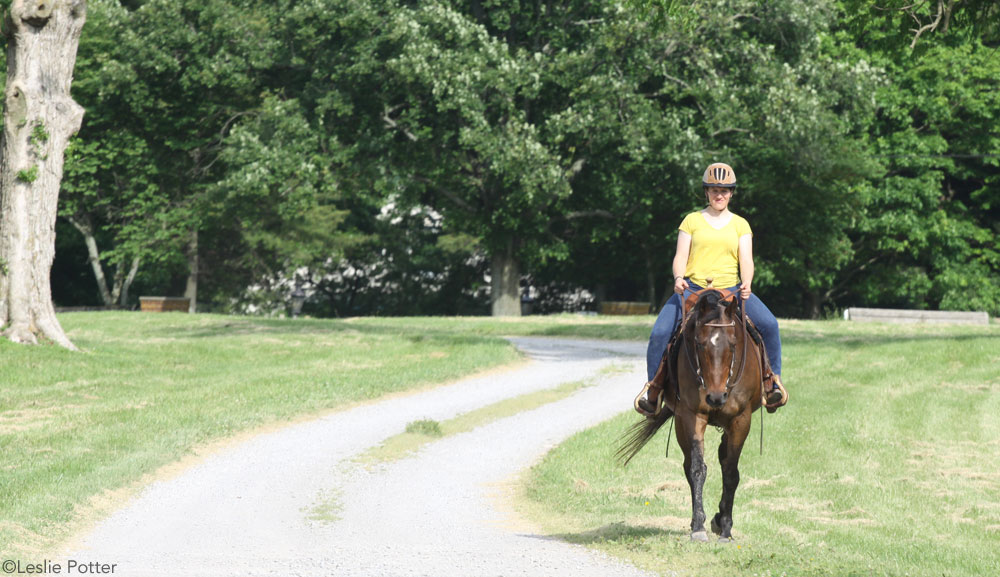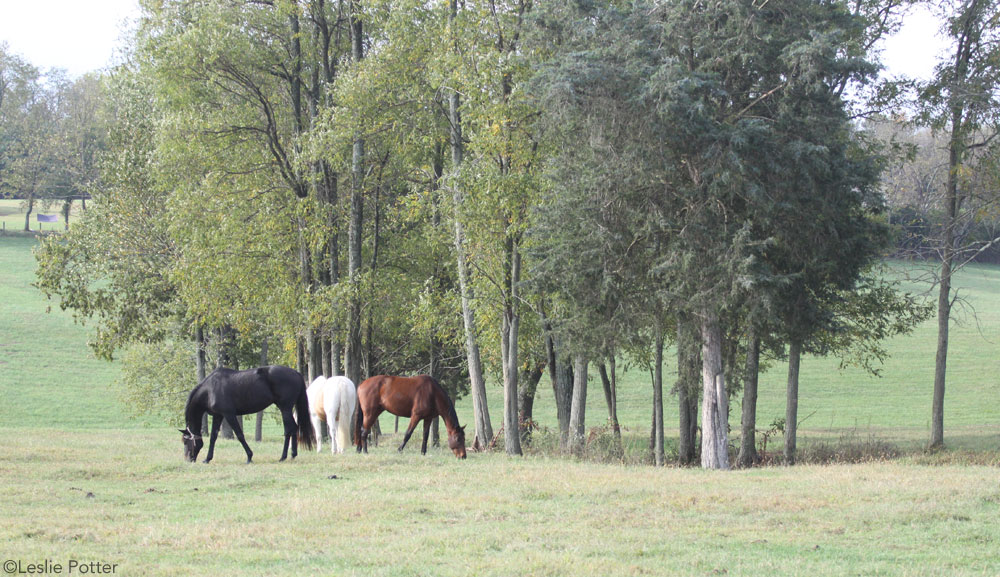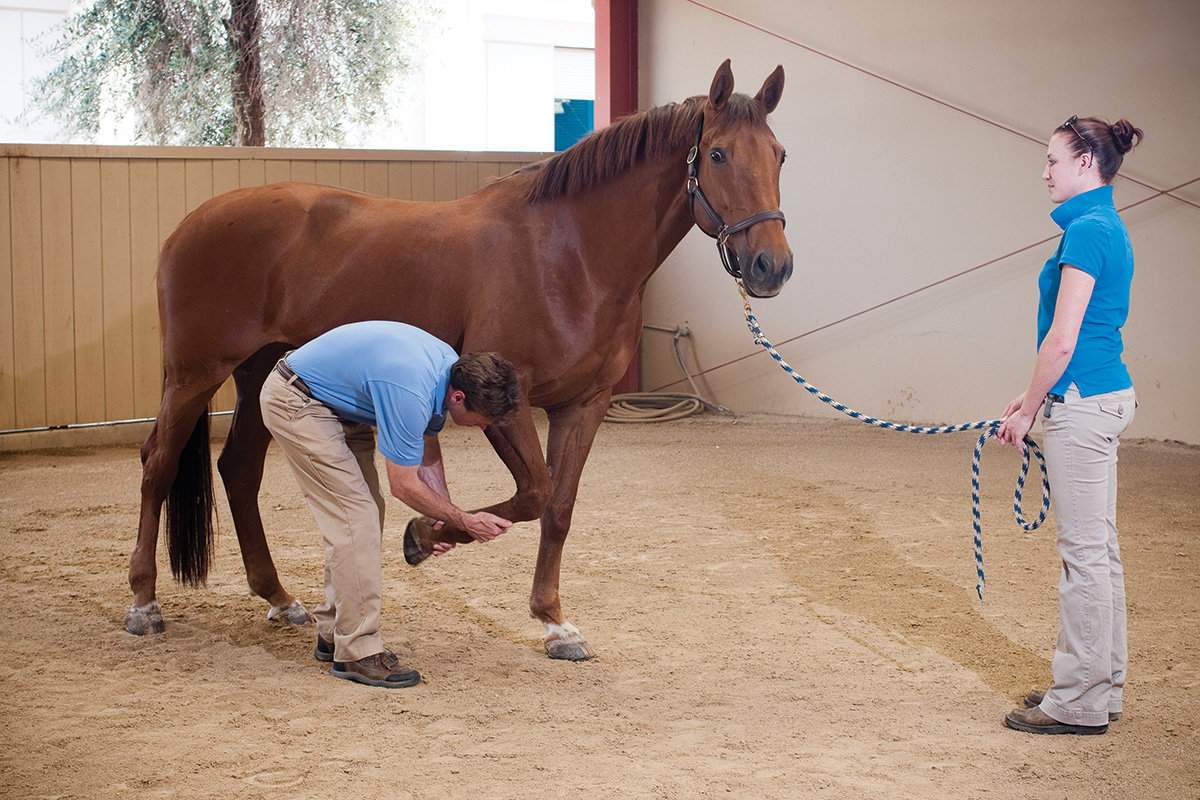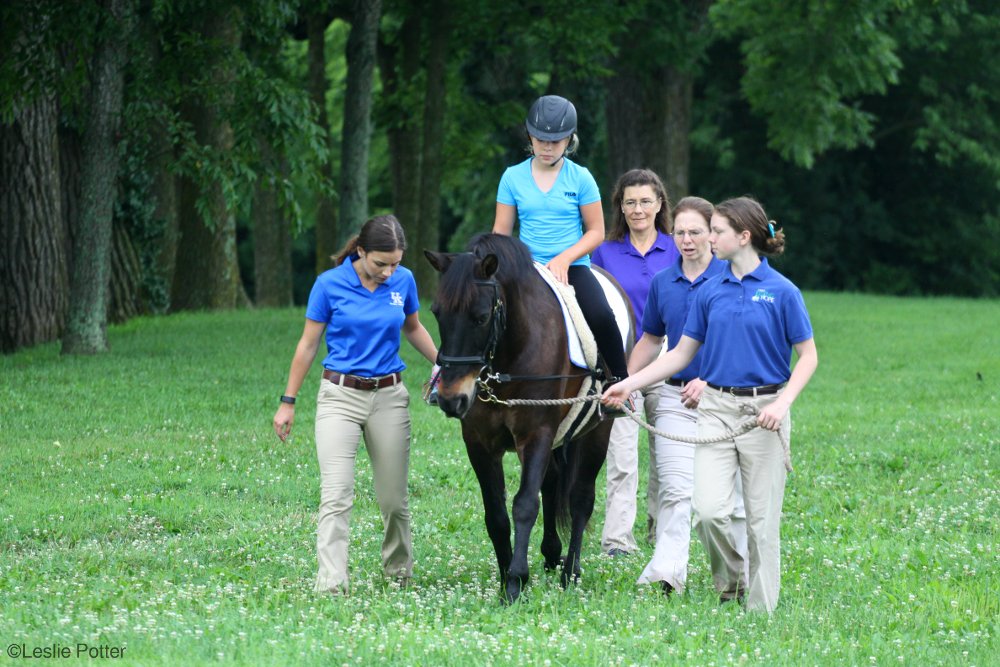Certainly as humans age, we take it easy. Maybe running marathons is out, but mall walking is in. Or skiing might be off the table but golf might take its place. Remaining active is important as we age, but the intensity of exercise for senior citizens is frequently guarded. If you’re the owner of an older horse, this might get you wondering: how should an older horse’s exercise routine change as he ages? In trying to answer this question, we should first understand how an older horse’s body responds to exercise.

Cardiovascular fitness
Studies have shown that older horses, like elderly humans, have a decline in the their maximum oxygen uptake as compared to younger animals. Changes in cardiovascular function prevent an older horse from as efficiently utilizing the same amount of atmospheric oxygen for aerobic activity (known as VO2max) as a younger horse.
Part of this is due to the fact that an older horse’s heart has a lower maximum heart rate than a young horse; simply put, a senior horse’s heart cannot physically beat as fast as it once could. This means that senior horses will become exhausted more quickly if asked to perform high intensity workouts.
Thermoregulation
Horses, like humans, sweat to stay cool during exercise as their internal body temperature rises. Some research has shown that older horses have an age-related decrease in their ability to thermoregulate. A study conducted in 2010 demonstrated that a group of horses with an average age of 26 years took half the time to reach a pre-determined elevated body temperature during exercise as compared to a group of horses with an average age of 8 years. In other words, older horses seem to have a harder time cooling themselves down during exercise. Horses that are overheated tend to have higher heart rates during exercise and take a longer time to cool down and could be more prone to metabolic disturbances.
Skeletal system
Osteoarthritis is the most common musculoskeletal condition seen in senior horses and it can impact their physical mobility and exercise program. Chronically swollen joints and stiffness in cold weather or after walking out of the stall in the morning are chronic signs of the physical process of deterioration within a joint or joints. While there is no cure for osteoarthritis, there is a handful of useful medications and joint supplements that can help keep your older horse comfortable. If there are no other health reasons preventing your arthritic horse from being active, a mild to moderate amount of gentle exercise is beneficial for this condition, as movement helps increase the flow of joint fluid circulating through arthritic areas.
What, then, do these changes in your older horse’s body mean in terms of exercise? Here are some recommendations:

- If you are training your senior horse for something specific, build up your workouts slowly and methodically.
- Be aware that high intensity exercise will fatigue an older horse more quickly; therefore, avoid prolonged periods of such exercise to prevent excessive stress.
- Establish a baseline heart rate for your senior horse and frequently take his heart rate after a workout to see how long it takes for him to cool down. Adjust workouts accordingly if it is suddenly taking longer than normal for his heart rate to return to his pre-determined resting heart rate.
- Strenuous riding should be avoided with older horses when it is excessively hot and/or humid outside. All horses should have immediate access to clean water after a work out.
- Closely monitor your senior horse for signs of dehydration when weather conditions are hot/humid. Signs of a dehydrated horse include skin tenting, dry gums, and dry manure.
- If your horse is arthritic, remember to take extra time during warm ups, especially in colder weather or if you horse has been stalled for long periods.
- If possible, maintain your senior horse on pasture as much as possible instead of in a stall. The walking done during grazing is excellent low impact exercise that helps prevent stiffness.
- As with warming up, take extra time to make sure your senior horse is cooled down properly.






That article was very informative. I will start monitoring my senior’s heart rate and build up her work outs.
great info
Since I am 74 and my horse is 18 – think I have the right to say that it’s good to get exercise whatever the age! We both love getting together and doing light exercise, especially when the weather is wonderful!
great info, really great tips!
t
My older girl is in with some younger colts, who like to play and run, so she runs with them.
Just like senior people excerise does us good too, specially on horseback.